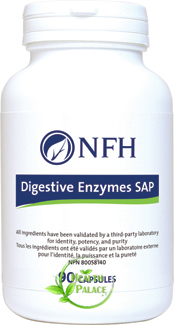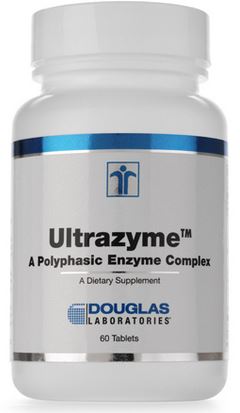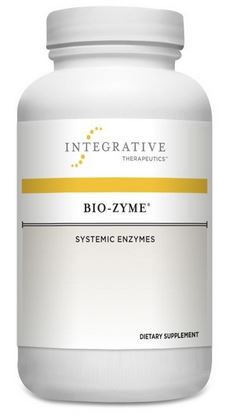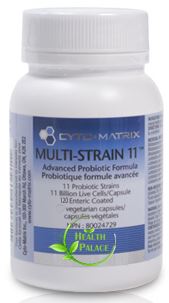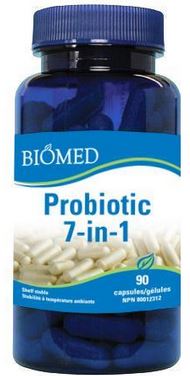How to Improve Digestion Naturally? | Natural Digestive Enzymes Supplements
How Digestive Enzyme Can Improve Your Health?
Digestive enzymes are produced by humans, animals, and some plants to facilitate and speed up breaking down big molecules. Digestive enzymes in the digestive tract help with food digestion and nutrient absorption. Other cells of the body also make similar enzymes, for example, our defense cells produce enzymes to destroy microbial proteins.
Food digestion in humans consists of multiple steps and for every step, there are specific enzymes. These specific digestive enzymes are produced by salivary glands, pancreas, liver, and the lining of the digestive tract. Digestive enzymes are essential for our survival and health.
Different Types of Digestive Enzymes Are Specialized to Digest Specific Types of Foods:
- Protease & Peptidase break proteins into smaller peptides and amino acids.
- Trypsin & Chymotrypsin convert proteins to amino acids.
- Aminopeptidase breaks the peptides further to amino acids.
- Lipase breaks the fat molecules and triglycerides into fatty acids and glycerol.
- Phospholipase converts phospholipids to fatty acids.
- Amylase breaks big carbohydrates and starch into smaller sugars.
- Lactase converts lactose (sugar from dairy ) to glucose.
- Maltase converts maltose to glucose
- Surcease Converts sucrose to simple sugars of glucose & fructose
- Neuclease breaks the nucleic acids to nucleotides.

Steps Of Digestion:
The digestive process starts in the mouth, where salivary glands produce multiple enzymes to facilitate further digestion in the stomach.
Saliva contains amylase and lipase initiating digestion of carbohydrates and fat. Salivary glands also secrete lysozymes to combat microbes. And the R-Factor in the saliva assists with the absorption of vitamin B12.
Next, when food reaches the stomach, it triggers parietal cells to release an acid which consequently initiates the production of pepsin and acidic gastric lipase by Chief cells. Pepsin starts digesting protein molecules, and acidic lipase starts lipid/fat digestion. Stomach acid also plays an important role in the absorption of micronutrients such as iron, calcium, magnesium, boron, zinc, copper, and selenium from food. The end product of the stomach is a semi-fluid content called Chyme.
Then gradually stomach empties the acidic chyme into the small intestine. The beginning of the small intestine is called the duodenum consisting of S cells. S cells are sensitive to acid and produce a hormone called secretin. Secretin triggers the pancreas to release bicarbonate-rich juice and pancreatic enzymes. Pancreatic enzymes are including trypsin, chymotrypsin, lipase (non-acidic), phospholipase, and amylase. Bicarbonate juice is necessary to reduce the acidity of the chyme protecting the intestinal wall against acidity, also in contrast to the stomach, pancreatic enzymes can only begin their job when the environment is not acidic.
Other cells in the lining of the duodenum are called "I cells" being responsive to high protein and fat content. I cells produce a signaling compound called CCK (Cholecystokinin). CCK Further stimulates the gallbladder to release bile to the duodenum via the bile duct. Bile helps with the absorption of fat molecules by emulsification.
Bile is made by liver cells and gathered in the gallbladder. Bile is made up of two major parts including; bile acids being critical for digesting lipids and absorption of vitamins, and the waste part containing cholesterol, phospholipids, and bilirubin.
More enzymes such as maltase, lactase, and sucrase are recreated along the small intestine to help further break down the food into simple nutrients.
At this level, the process of digesting food into its smaller components is completed. This is very apparent that digestive enzyme insufficiency in any of those steps will create an interruption of indigestion. To address digestive enzyme insufficiency usually, proper supplementation is required.

Who Needs to Take Digestive Enzymes?
Generally speaking, taking digestive enzymes makes the job of the liver, pancreas and small intestine easier helping to take the stress off these organs. Usually, Raw foods and vegetables are rich in enzymes; however, processing food and cooking destroys the majority of these enzymes. So the body has to make enough enzymes to digest all the food and that stresses the enzyme-producing organs. Supplementing with digestive enzymes helps to digest the food more efficiently.
Anybody with digestive diseases such as Crohn's Colitis, Irritable Bowel, Constipation, Diarrhea, Leaky Gut, Gas and Bloating, and Acid Reflux benefits from taking digestive enzymes by helping their digestive organs and improving the digestive process.
By aging, the digestive system gets slower and produces lass of acid and enzymes necessary to absorb nutrients. The low acidity of the stomach alone can contribute to less response in the small intestine. As a result, food stays longer in the stomach. Burping and acid reflux are a few symptoms of low acid production in the stomach.
Low acid production (Hypochlorhydria) is not only caused by aging. This condition is a result of low acid production that could be identified at any age. Low stomach acid interrupts the next steps of digestion, creating poor absorption, nutrient deficiency, and symptoms of indigestion. Low stomach acidity could be one of the contributors to Iron and B12 deficiency as well as a frequent candida infection. Low acid stomach increases food allergies and food sensitivity, as the undigested or poorly digested molecules get into the small intestine, the immune system will react and cause allergy, asthma, and chronic inflammation.
Studies have linked low acid production in children to food allergies, which then causes an asthmatic reaction, poor absorption, and being underweight. Enzyme therapy and eliminating those foods that the child is reactive to are suggested to be included in the treatment.
Liver disease is usually simultaneous with digestive enzyme insufficiency. Bile plays a role in the emulsification of lipids which is important for the absorption of fat-soluble vitamins such as Vitamin D, Vitamin A, and omega 3 fatty acids. Therefore deficiencies of fat-soluble vitamins and fatty acids could be in part due to poor absorption.
Pancreatic insufficiency cases the low pancreatic enzymes. Pancreatic tissue could be impacted by some toxins and free radicals which results in low enzyme production. The pancreatic enzyme also could be affected by fluoride intake. A study suggests that ingesting fluoride can neutralize pancreatic enzymes.
Low pancreatic enzymes cause a great deficiency in digestion and the absorption of the nutrient. Symptoms like chronic diarrhea, flatulence, and bloating about one hour after a meal could be the results of low enzyme levels.

What are the benefits of taking digestive enzymes?
Of course, the most important function of digestive enzymes is to make the nutrients from food available and possibly to be absorbed. So, balanced levels of the digestive enzyme are curtailed to our health.
Digestive enzymes enhance the absorption of nutrients such as essential fatty acids, amino acids, vitamins, and minerals like iron, magnesium, calcium, and trace minerals.
Digestive enzymes help our digestive system to break down the difficult-to-digest proteins such as gluten and casein, as well as sugars like lactose.
Taking digestive enzymes to help those who have to take high protein type foods including athletes to absorb more of the amino acids and other nutrients for quick recovery and better results.
Digestive enzymes assist in digesting high-fiber meals. The high fiber diet is very healthy and it provides numerous benefits; but the human digestive system does not produce any enzyme digest fiber, therefore symptoms of bloating and cramping are common after taking a high fiber meal. Taking a digestive enzyme with high fiber foods will prevent discomfort and improves the digestive process.
Symptoms of IBS, acid reflux, and conditions such as the leaky gut, celiac disease, and lactose intolerance greatly improve from supplementing with digestive enzymes.
It is clinically proven that Indigestion, gas, and bloating, food sensitivity, and Candida overgrowth or dysbiosis improve with taking digestive enzymes.
Research suggests taking a full spectrum of digestive enzymes is beneficial and could improve health in conditions such as malabsorption syndrome, malnutrition, and in fragile patients including young children and the elderly.
Both animal model and in vitro studies showed taking a combination of 9 strains of probiotics including Lactobacillus and Bifidobacteria along with a spectrum of 10 digestive enzymes improves Cholesterol metabolism. The mouse model under the high-fat diet when supplemented with a combination of probiotics and digestive enzymes showed lower LDL ( Bad Cholesterol), higher HDL ( good cholesterol ), and general improvement in cholesterol profile in comparison with a mouse under the same diet without supplementation.
Some immune-related diseases, inflammation, and even cardiovascular conditions could improve or be prevented by taking digestive enzymes.

Which Digestive enzymes Are Better?
Digestive enzyme supplements are made from three different sources. Pancreatic enzymes and bile salts are sourced from animals, Vegetarian enzymes are obtained from probiotics and fungi, Fruit enzymes like papain and bromelain are from papaya and pineapple. There is a variety of supplements that use only one source or a combination of sources and different ratios of each enzyme.
Usually, the source of enzyme and the ratio of each kind is chosen based on the digestive symptoms and the deficiencies. Full-spectrum digestive enzymes are usually used for general digestive improvement.
All the enzymes are not made the same and will not perform the same. Even though at first glance quantity and the ratio of the two supplements may appear the same, there are specific methods of making them be able to work more effectively in both the acidic environment of the stomach and the low acidic zone of the small intestine. Also, some of the combinations make the enzymes more effective.
For example, Betaine Hydrochloride (Betaine HCL) works better with Pepsin, Lipase and bile salts work together for lipid digestion, and some herbs like ginger and peppermint enhance the help of enzymes.
Different enzyme products have different units of activity. Enzymes activity of an enzyme is measured based on how fast it can break down a certain food. These measurement tests are called assays, and each enzyme has its assay reported as an activity unit. For example, the HUT, SAP, AP, PU, and PCall are units chose for protease enzymes registered in Food Chemical Codex (FCC). DU is the FCC's unit for amylase.
Better brands normally provide these units and usually use the FCC units or those from US Pharmacopeia (USP). Depending on the application of the products different units may be chosen. The metric weight or milligram amount of an enzyme alone does not say much about how fast-acting or potent the enzyme is. A combination of unties and mg amounts provides a better understanding of how good a digestive enzyme is when compared with the other ones.
Articles and products featured by Health Palace are collected from a variety of sources and are provided as a service by Health Palace. These newsletters, while of potential interest to readers, do not necessarily represent the opinions nor constitute the advice of Health Palace. Presented materials are only for information purposes and do not intend to treat, cure, or prevent any disease.
References:
1.Brown, Thomas A. "Rapid Review Physiology." Mosby Elsevier, 1st Ed. p. 235
2.Brown, Thomas A. "Rapid Review Physiology." Mosby Elsevier, 1st Ed. p. 244
3.http://www.vivo.colostate.edu/hbooks/pathphys/dige...
4.http://www.naturalnews.com/022406_enzymes_food_hea...
5.Pan DD, Zeng XQ, Yan YT. Characterisation of Lactobacillus fermentum SM-7 isolated from koumiss, a potential probiotic bacterium with cholesterol-lowering effects. J Sci Food Agric. 2011;91(3):512–518. doi: 10.1002/jsfa.4214.
6.Oner O, Aslim B, Aydas SB. Mechanisms of cholesterol-lowering effects of lactobacilli and bifidobacteria strains as potential probiotics with their bsh gene analysis. J Mol Microbiol Biotechnol. 2014;24(1):12–18. doi: 10.1159/000354316.
7.Pereira DI, Gibson GR. Effects of consumption of probiotics and prebiotics on serum lipid levels in humans. Crit Rev Biochem Mol Biol. 2002;37(4):259–281. doi: 10.1080/10409230290771519.
8.Jones ML, et al. Cholesterol-lowering efficacy of a microencapsulated bile salt hydrolase-active Lactobacillus reuteri NCIMB 30242 yoghurt formulation in hypercholesterolaemic adults. Br J Nutr. 2012;107(10):1505–1513. doi: 10.1017/S0007114511004703.
9.J Transl Med. 2016 Jun 22;14(1):184. doi: 10.1186/s12967-016-0945-2.
10.Heather A. Wiera and Robert J. Kuhnb. Pancreatic enzyme supplementation. Curr. Opin. Pediatr. 2011;23:541–544.
11.Domínguez-Muñoz J.E. Pancreatic enzyme therapy for pancreatic exocrine insufficiency. Curr. Gastroenterol. Rep. 2007;9(2):116–122.
12.Kanabar D., Randhawa M., Clayton P. Improvemento of symptoms in infant colic following reduction of lactose load with lactase. J. Hum. Nutr. Diet. 2001;14:359–363.
13.Mitea C., Havenaar R., Drijfhout J.W., Edens L., Dekking L., Koning F. Efficient degradation of gluten by a prolyl endoprotease in a gastrointestinal model: implication for coeliac disease. Gut. 2008;57:25–32.
14.Selimoğlu M.A., Karabiber H. Celiac disease: prevention and treatment. J. Clin. Gastroenterol. 2010;44(1):4–8.
15.Roxas M. The role of enzyme supplementation in digestive disorders. Altern. Med. Rev. 2008;13(4):307–314.
16.Zorn J. Experiences with substitution therapy using a new pancreatic enzyme of plant origin. Fortschr. Med. 1978;96:1941–1943.
17.DiPalma J.A., Collins M.S. Enzyme replacement for lactose malabsorption using a beta-D-galactosidase. J. Clin. Gastroenterol. 1989;11:290–293.
18.Friman S., Thune A., Nilsson B. Svanvik Medication with ursodeoxycholic acid enhances the biliary clearance of polyethylene glycol 900, but not mannitol. Digestion. 1995;56(5):382–388.
19.Orlando R., Azzalini L., Orando S., Lirussi F. Bile acids for non-alcoholic fatty liver disease and/or steatohepatitis. Cochrane Database Syst. Rev. 2009;1:CD005160.
20.Bang Jørgensen B., Thorsgaard Pedersen N., Worning H. Short report: lipid and vitamin B12 malassimilation in pancreatic insufficiency. Aliment. Pharmacol. Ther. 1991;5:207–210.
Bioclinic Naturals Digest ProGD 60 Veg Capsules
|
NFH Digestive Enzymes SAP 90 Capsules |
||||||||
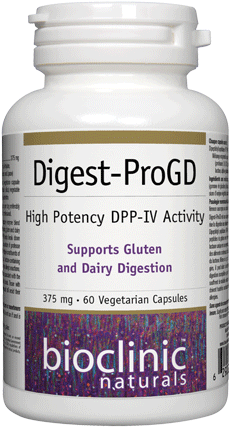
Digest-ProGD is a broad spectrum proprietary enzyme blend, providing unique support for the digestion of both gluten and dairy proteins, as well as lactose, other carbohydrates, proteins and fats...Read more |
|
|
|||||||
|
|
|
|
|
|
|||||
|
|
|
|
|||||||
| Integrative Therepeutics Bio Zyme 100 Tablets | Cyto Matrix Multi Strain 11 - 120 Veg Capsules Enteric Coated |
|
|||||||
|
|
This advanced probiotic formula contains 11 strains and 11 billion live probiotic cells per capsule. Multi-Strain 11 ™ includes the strain L.salivarius, a strain known for its ability to effectively upregulate the secretion of anti-inflammatory cytokine IL-1 O...Read more
|
Probiotic 7-in-1™ formula has been uniquely designed to incorporate several different forms of healthy bacteria that resist the negative actions of oxygen, gastric acid and bile salts on.... | |||||||
|
|
|
Recent Posts
-
Maintain A Healthy Heart Rhythm With Integrative Medicine
Maintain A Healthy Heart Rhythm With Integrative Medicine;Usually, abnormal heart rate or arrhythmi …4th Feb 2021 -
How To Protect Against COVID-19
Coronaviruses are a large group of viruses that cause many common human and animal infections. In hu …30th Jun 2020 -
How to Prevent Gallstones from Forming? | Natural Supplements for Gallstones
How To Prevent Gallstone Formation?Gallstones are hard deposits made of cholesterol or bilirubin f …4th Mar 2020


